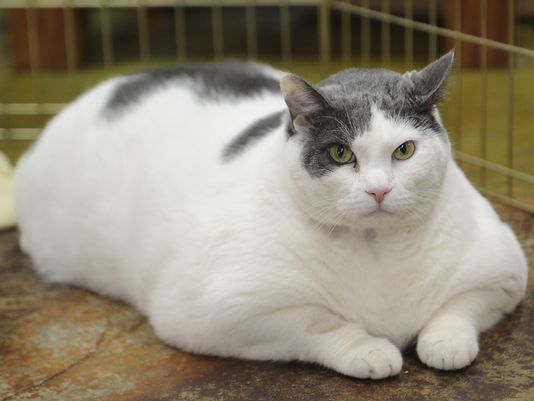Obesity is a serious condition in a cat which is the root cause of many fatal diseases including hepatic lipidosis (fatty liver disease), non-allergic skin conditions, diabetes, and even urinary tract disorders. In US, approximately 55 percent (47 million) cats are obese or overweight according to the Association for Pet Obesity Prevention (APOP).
The ideal weight for domestic cats is between 8 and 10 pounds, although some cat breeds have larger ranges. For instance, Siamese and Persian cats can range 6 to 12 pounds, whereas Maine Coon cats are considered normal at up to 25 pounds. But, these ranges of weight are the exceptions rather than the rule.
If your cat is also obese, one question might be popping in your mind: Why my feline friend is gaining weight? Well, the answer of this question is quite simple! You should remember that any individual mammal (cat, dog, horse, human, etc.) will gain weight if it consumes more calories than it burns as fuel for energy. If your cat is also obese, then your primary responsibility is to limit the calories that your cat is getting.
According to the Association for Pet Obesity Prevention, an indoor cat weighing 10-pound should take in about 200 calories a day. Further, you can opt following measures for the weight reduction program of your feline friend.
- Try to limit access to current food
Generally, it is recommended that the food amount fed daily to your cat be cut back by 20% to 40%. For instance; normally, if your feline friend is eating 3/4 cup of dry food, now she should be fed about 1/2 cup.
- Feed only weight reduction diet to your cat
If you want to feed the usual amount of food, then weight reduction diets help you a lot because these diets contains less fat and calories. Some examples of low calorie cat foods are:
-
- Broccoli
- Air-popped popcorn, non-buttered and non-salted
- Cooked green beans
- Baked or frozen canned diet food
- Commercial low calorie cat treats
- Get exercise on regular basis
Exercise is very important for the overweight cats, as it burns calories and fat. In addition to this, it helps to maintain joint health and muscle in your cat. You should play with your feline friend for at least 15 to 25 minutes, twice daily. Further, an interactive, exciting game of chasing a feathered toy enhances bonding between you and your cat as well as helps keep your feline friend healthy.

